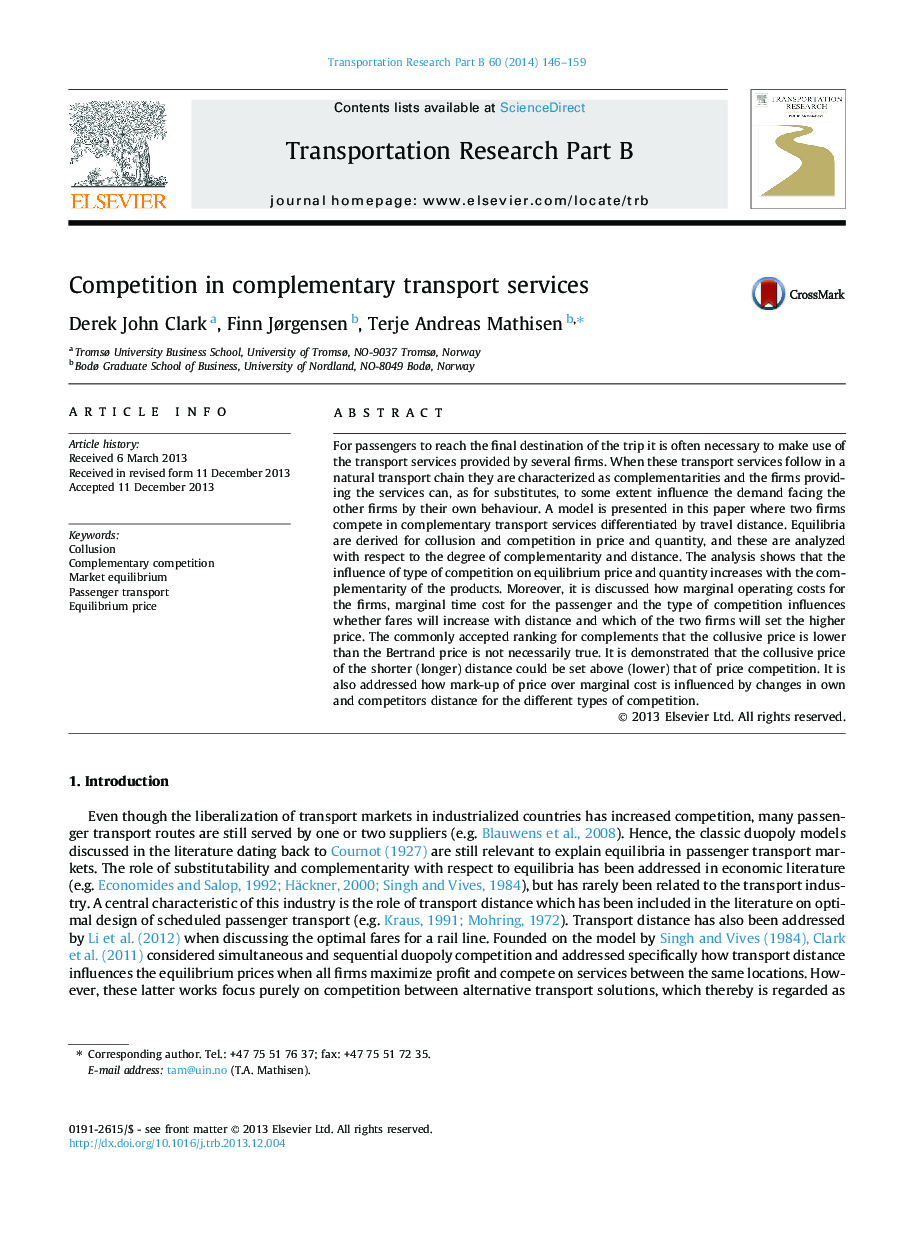| Article ID | Journal | Published Year | Pages | File Type |
|---|---|---|---|---|
| 1132021 | Transportation Research Part B: Methodological | 2014 | 14 Pages |
•Extends on earlier models by introducing complementary services differentiated by distance.•Equilibria are compared for simultaneous competition, sequential competition and collusion.•Provide an analysis of how fares change with marginal costs and passengers’ time costs.•The analysis addresses the conditions under which fares increase with distance and the ranking of fares.•The influence of distance on mark-up of price over marginal cost is analyzed.
For passengers to reach the final destination of the trip it is often necessary to make use of the transport services provided by several firms. When these transport services follow in a natural transport chain they are characterized as complementarities and the firms providing the services can, as for substitutes, to some extent influence the demand facing the other firms by their own behaviour. A model is presented in this paper where two firms compete in complementary transport services differentiated by travel distance. Equilibria are derived for collusion and competition in price and quantity, and these are analyzed with respect to the degree of complementarity and distance. The analysis shows that the influence of type of competition on equilibrium price and quantity increases with the complementarity of the products. Moreover, it is discussed how marginal operating costs for the firms, marginal time cost for the passenger and the type of competition influences whether fares will increase with distance and which of the two firms will set the higher price. The commonly accepted ranking for complements that the collusive price is lower than the Bertrand price is not necessarily true. It is demonstrated that the collusive price of the shorter (longer) distance could be set above (lower) that of price competition. It is also addressed how mark-up of price over marginal cost is influenced by changes in own and competitors distance for the different types of competition.
